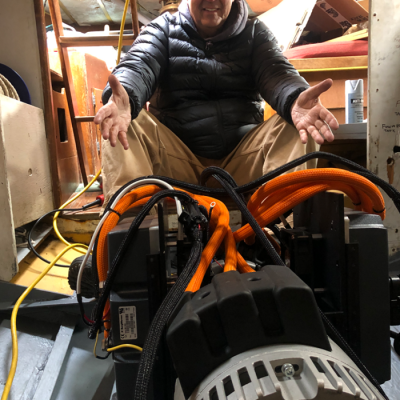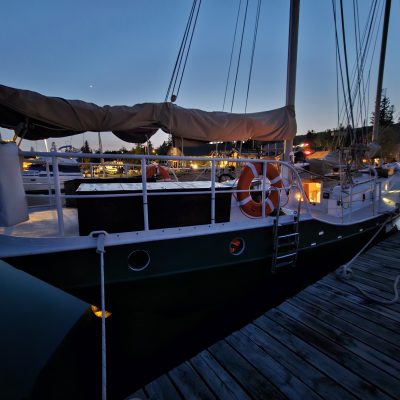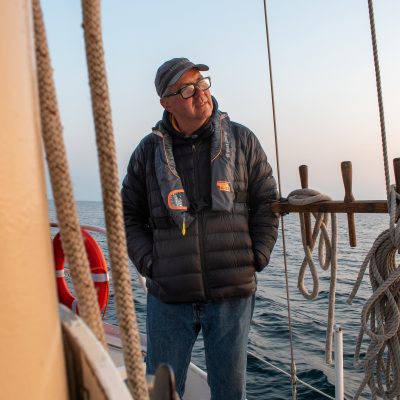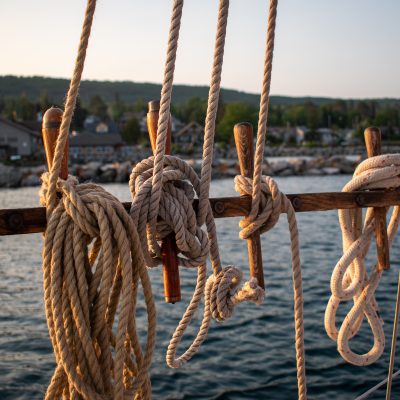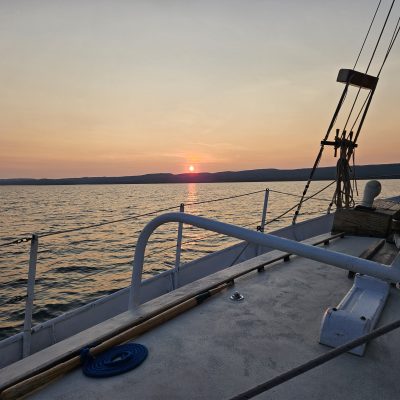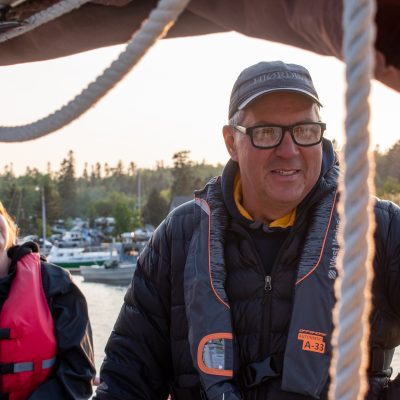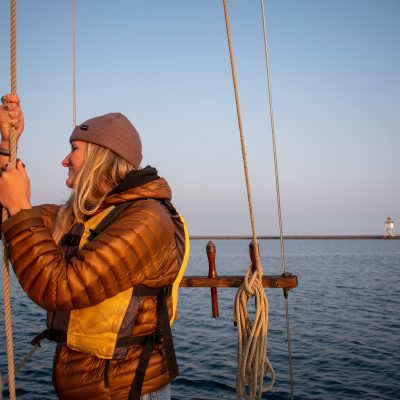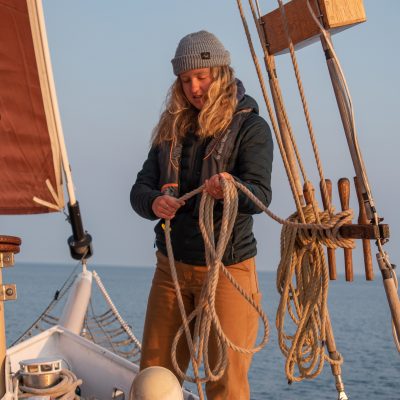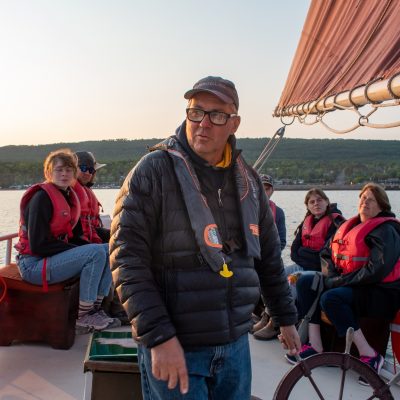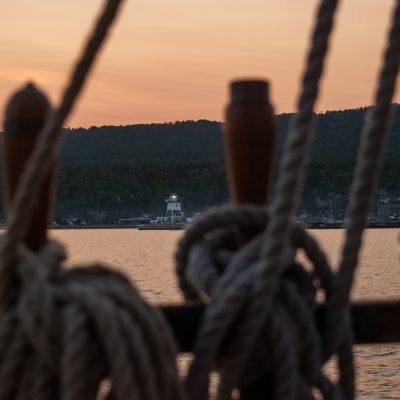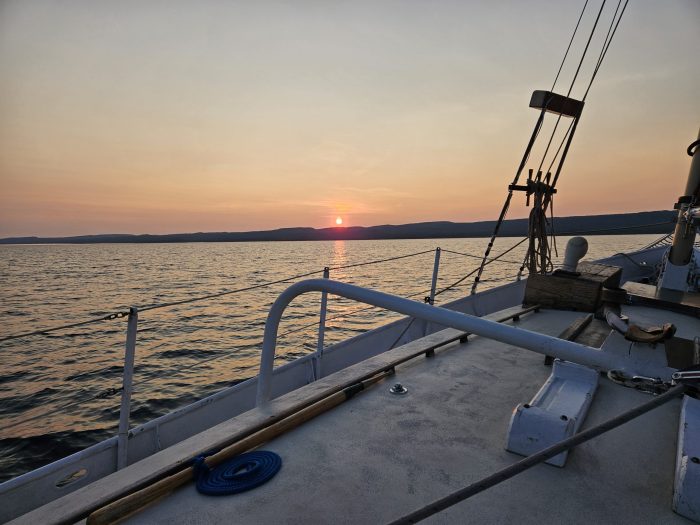Sailing into the future: the Hjordis’ electric motor surpasses expectations
The 2023 sailing season for the Hjordis at the North House Folk School is off to a quieter start in terms of engine noise.
After 25 years of operating on Lake Superior with a diesel engine, the Folk School switched to an electric motor in May. Now that it has been installed and has well over 45 hours of operation under its belt, WTIP checked in with the Folk School to see how the new motor is meeting expectations.
“It has more power than I expected,” said Bill Hansen, the captain of the Hjordis. “Especially because it’s a quarter the size of the old engine.”
Hansen explained that the electric motor allows better maneuvering around the marina and provides “power right away.” In addition, he said, “The customer satisfaction is just off the charts because it’s essentially silent.”
The electric motor requires minimal maintenance and upkeep compared to a diesel engine. Hansen said the motor is simple, reliable, and safe. “That’s the beauty of it.”
The diesel engine costs approximately $1500 annually for fuel, oil, and maintenance. Furthermore, a mechanic would do a major tune-up every five years, and every twenty years, the engine would need to be rebuilt or replaced. “When you figure in all of those expenses that will be avoided by this, this (electric motor) will pay for itself probably in 8 to 10 years,” said Hansen.
WTIP’s Kalli Hawkins spent an evening on the Hjordis with Bill Hansen to experience the electric motor and learn more about its capabilities. Hansen talks about his passion for sailing, the comparison between the former diesel engine vs. the electric motor, and how electric motors are becoming a standard in the charter sailing community. Audio from the feature is below.
Photos from the Hjordis sunset sail:
